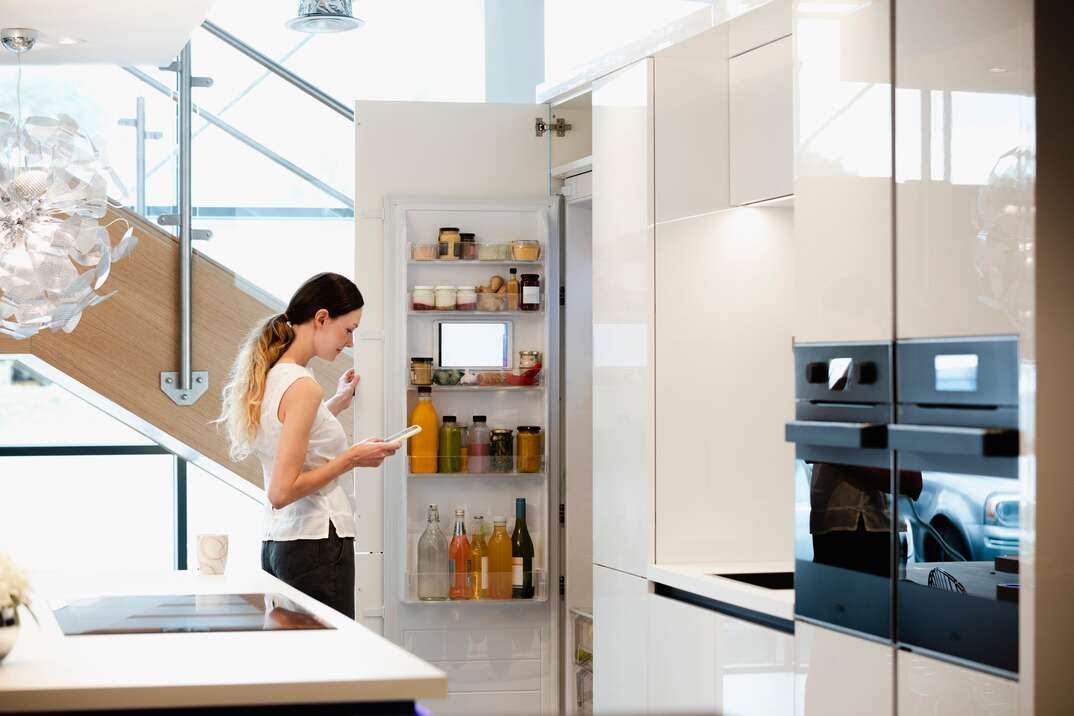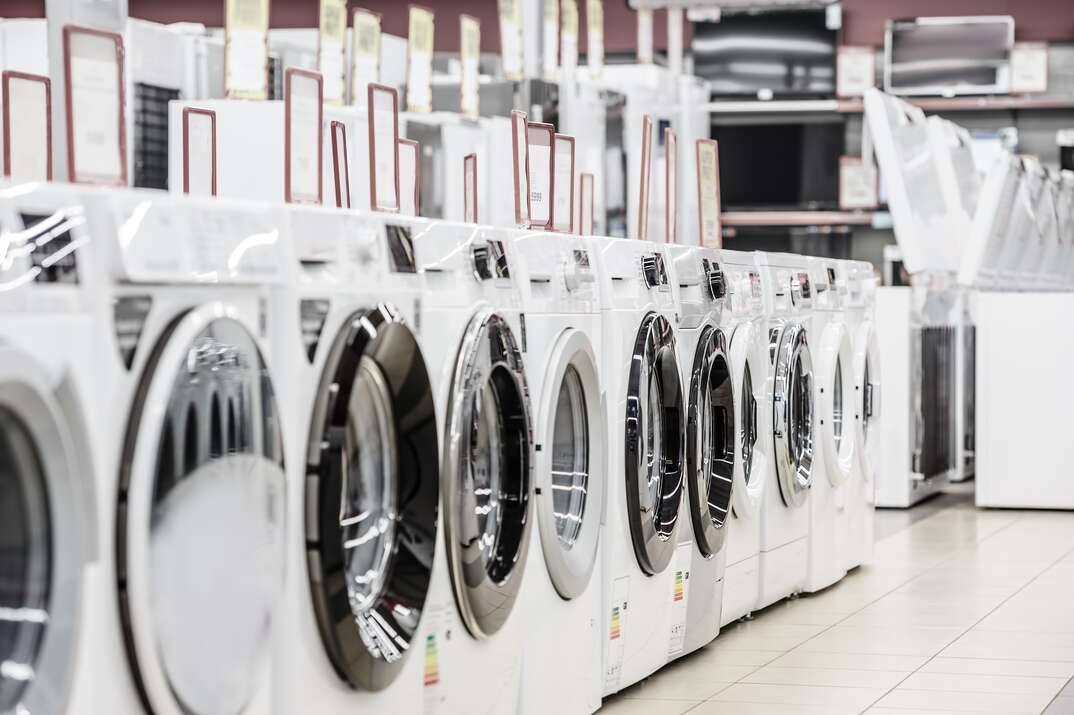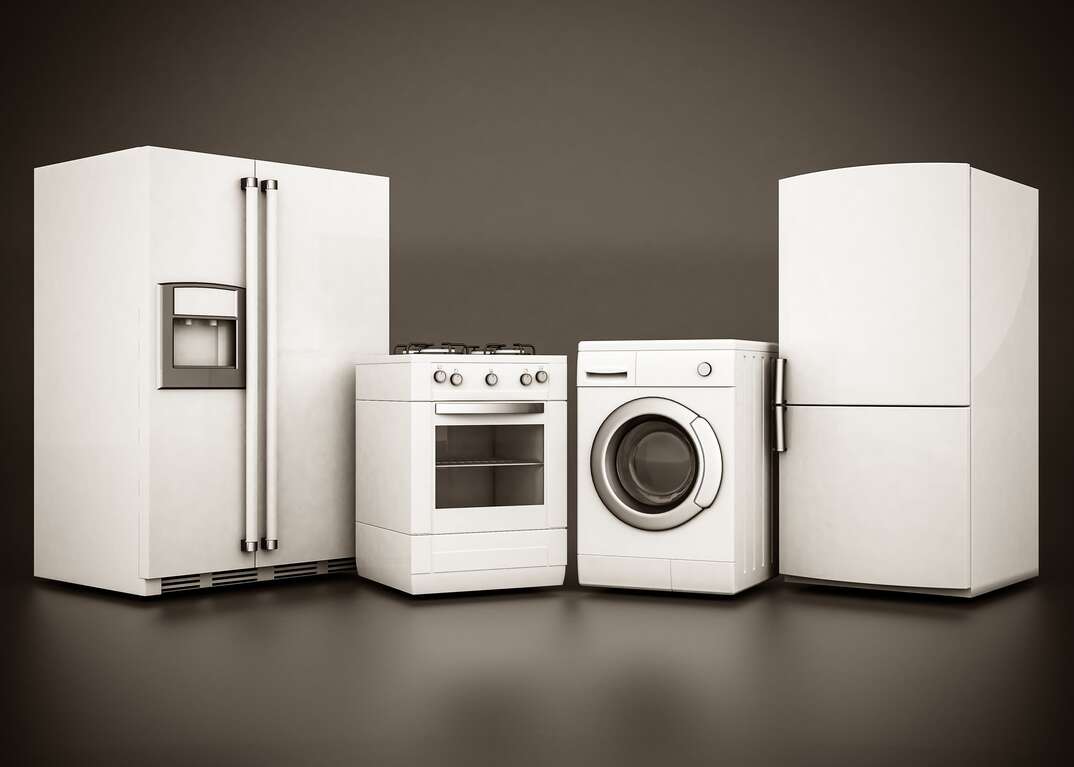Should I Buy a Smart Appliance? Here's Everything You Need to Know

From a refrigerator that sends you a text when you’re out of orange juice to a toaster that lets you micromanage the level of toastiness to a microscopic level, smart products are all the rage these days. It’s true: Unless you’ve been in hiding under a rock, you’ve undoubtedly heard the term “smart” thrown around in the world of household appliances, electronics and a seemingly endless variety of other products.
This May Also Interest You: Samsung Smart Refrigerators: Smart Features and How They Work
But with all of the hype around smart products and their promises of increased convenience, efficiency and control, it can be difficult to discern whether or not these products are actually worth purchasing. And the truth is: It depends.
Are you ready to jump on the “smart” train? Here’s our guide to everything you need to know about smart home appliances.
What Makes an Appliance ‘Smart?’
Generally speaking, a smart appliance is one that you can connect to through your smartphone or tablet. This allows you to program and control your appliance remotely. Additionally, most smart home appliances give you an unparalleled level of control that you can command via a downloadable smartphone or tablet app.
Another way to think of smart appliances is that they’re simply appliances that have the standard functions and take them a step further. A smart refrigerator is a refrigerator that does more than just keep your groceries cool, and a smart dishwasher does more than just simply clean your dishes.
Of course, smart features vary from product to product. And some smart house devices are indeed worth the added price tag, if you’re looking to increase the convenience, efficiency and control of your home appliances.
Benefits of Smart Appliances
Smart home appliances are designed to enhance our daily lives through increased control and advanced automation technology. Smart home technology allows users to enter a world of convenience and functionality that seems straight from the realm of science fiction.
Remote Control…From Anywhere and Everywhere
One of the top benefits of smart appliances is the ability to manage and control them from an app on your smartphone or tablet. The convenience factor here is truly excellent. From preheating your oven on your evening commute, to starting your coffee maker from your bed in the morning, keeping your appliances connected through one interface is a huge boon to home management.
Alerts and Notifications
Another great perk to owning smart products is their ability to alert you at the first sign of a potential issue. It could be that your refrigerator has been left open, or maybe your dishwasher’s filter needs cleaning. Certain appliances — like some smart ovens — can tell you when to take your food out, even if you didn’t start a timer. And some smart dishwashers will notify you when your dishes are completely dry.
Beyond that, many smart home appliances can provide you with up-to-date maintenance alerts, and can actually diagnose themselves when an issue arises. Receiving notifications about a problem with your appliance can save you time and money. Knowing what the problem is can keep you from having to spend unnecessary energy diagnosing it. And knowing what the problem is upfront can keep other complications from occurring.
Wi-Fi Connectivity
Perhaps the most beneficial feature inherent to smart home technology is the ability to utilize the full power of the internet to make your life at home easier. Some smart appliances can scan the barcodes of specific items and utilize a host of information related to the product. For example, some smart refrigerators allow you to connect to see what’s inside your refrigerator in real-time from anywhere. More than that, certain refrigerators can even notify you when food is about to expire.
Energy Efficiency
Although smart appliances generally cost more than traditional appliances, you’ll undoubtedly save money each month on your energy bills. Most smart appliances allow you to monitor your energy usage and report back to you on how much energy they are using.
Some energy companies charge users higher rates at different times based on the time of day, and most smart appliances allow users to manage their usage based on these high-demand periods.
More Related Articles:
- GE Smart Filtration Systems: Smart Features and How They Work
- How Much Do GE Smart Dishwashers Cost?
- LG Smart Ranges: Smart Features and Functionality
- How Much Does an LG Smart Range Cost?
- Can You Buy a TV That’s Not Smart?
Disadvantages of Smart Appliances
There’s no doubt that smart appliances can do wonders for our overall home management, but they aren’t without certain cons.
Cost
There’s no way around it: Smart appliances cost more than traditional appliances. In fact, on average smart home technology costs about 30% to 50% more. More than that, if something were to go wrong with a smart appliance, you may be stuck paying nearly double for that repair.
Privacy Risks
One of the biggest benefits smart home technology has to offer is its utilization of the internet. The unfortunate side-effect of that is that you may be making yourself vulnerable to hacking and other privacy risks. The more you use these devices, the more they learn about your home and consumer habits, putting you more at risk than you might think.
Dependent Upon Solid Internet Connection
Smart home gadgets are largely dependent upon Wi-Fi or Bluetooth connectivity to function fully. Without a good internet connection, you might be stuck with a smart device that is actually “dumb.” If you live in an area with spotty internet service, or if your Wi-Fi isn’t reliable, this could cause unwanted issues with any smart home device you integrate into your home.
Consider Your Needs Before You Buy
Smart home appliances have the potential to enhance the quality of your home life. In many ways, these appliances can be worth the added cost as they might save you energy costs in the long run.
Before you purchase a smart appliance, make sure you look at each feature and decide if it’s right for you. A smart refrigerator might be a practical investment for you and your family, but a smart washing machine or dishwasher might not be as worthwhile. After all, you’re still loading the clothes and dishes into the machine to run it. Ultimately, buying a smart appliance depends on your needs, budget and preferences.


